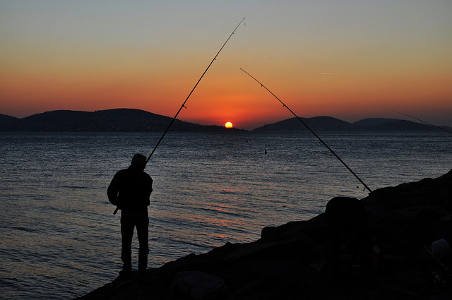In this article I want to talk about if sentences in Italian, explaining some of the most common ways to express a hypothesis in Italian.
To talk about hypotheses in Italian, we use if sentences.
These sentences are composed of two parts:
1. A condition – also called dependent clause
2. The action that occurs if the condition is fulfilled – also called independent clause
Example
Se esci senza cappotto, prenderai un raffreddore
If you go outside without a coat, you’ll catch a cold
Dependent clauses are usually introduced by the word se. Their position isn’t fixed. This means that they can be placed both before or after the independent clause.
So, the example above can be written in two ways:
Se esci senza cappotto, prenderai un raffreddore
Prenderai un raffreddore, se esci senza cappotto
If sentences in Italian can express certainty, possibility and impossibility.
IF SENTENCES EXPRESSING CERTAINTY
When Italian if sentences express certainty, the condition, according to the speaker, is always fulfilled.
So, if we refer to the previous example, according to the speaker you’ll always catch a cold if you go outside without a coat.
This type of hypothetical sentence can use all the tenses of the indicative – presente, futuro, passato prossimo, etc.
Examples
Se mangi troppo, farai indigestione
If you eat too much, you’ll get indigestion
Se sei sicuro, chiamalo e diglielo
If you’re sure, call and tell him
IF SENTENCES EXPRESSING POSSIBILITY AND IMPOSSIBILITY
When Italian if sentences express possibility, according to the speaker it’s possible, and very likely, that the condition will be fulfilled.
Instead, when Italian if sentences express impossibility, according to the speaker it’s impossibile that the condition will be fulfilled.
The tenses used in if sentences expressing possibility and impossibility are the same.
The choice between the tenses to be used, however, depends on whether the hypothesis refers to the present or to the past.
If the hypothesis refers to the present we use congiuntivo imperfetto in the dependent clause, and condizionale presente in the independent clause.
Example
Se studiassi, potrei passare l’esame
If I studies, I could pass the exam
Instead, If the hypothesis refers to the past we use congiuntivo trapassato in the dependent clause, and condizionale passato in the independent clause.
Example
Se mi avessi parlato del tuo problema, avremmo trovato una soluzione insieme
If you had talked to me about your problem, we could have found a solution together
TO SUM UP
| Hypothesis expressing | Dependent clause Tense | Independent clause Tense |
| Certainty | Indicativo | Indicativo/imperativo |
| Possibility | Congiuntivo imperfetto | Condizionale presente |
| Impossibility | Congiuntivo presente/trapassato | Condizionale presente/passato |
OTHER WAYS TO EXPRESS A HYPOTHESIS
IF SENTENCES…EXPRESSING IMPOSSIBILITY
Often, when if clauses express impossibility, in spoken Italian we replace both congiuntivo and condizionale with imperfetto.
Example
Se mi chiamavi, venivo subito
Instead of
Se mi avessi chiamata, sarei venuta subito
If you had called me, I would have come immediately
A COMMON MISTAKE TO AVOID
The most common mistake to avoid at all costs when talking about hypotheses is the use of condizionale in the dependent clause.
Example
Se sarei ricco, non lavorerei (wrong sentence)
Se fossi ricco, non lavorerei (correct sentence)
If I were rich, I wouldn’t work
If you need to master or revise intermediate Italian grammar, and if sentences, have a look at my book Sos Italian grammar B1-B2.
Credits
Original image by gaborfejes
Original image by ClkerFreeVectorImages





 American stereotypes about Italians (Part 2)
American stereotypes about Italians (Part 2)

